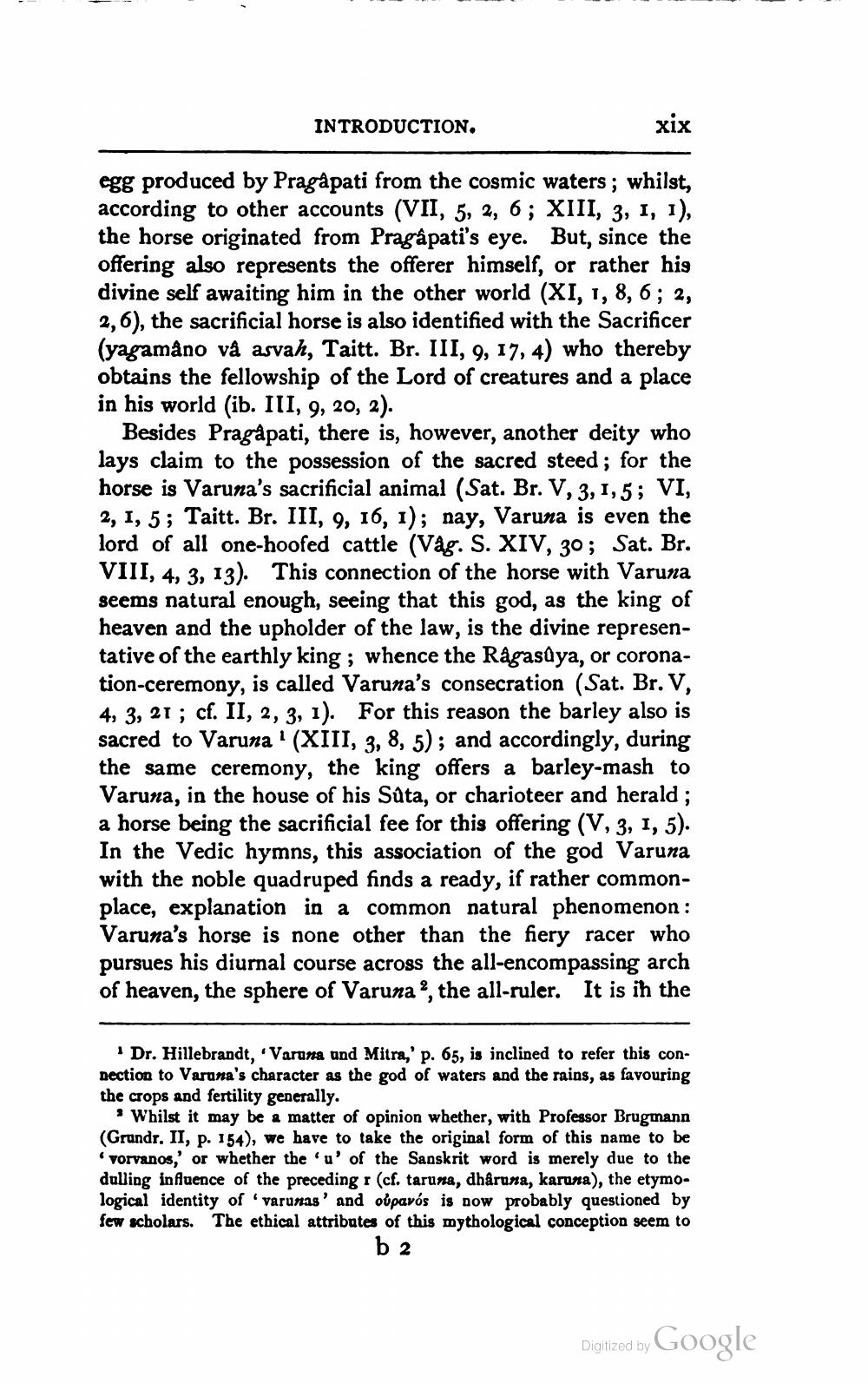________________
INTRODUCTION.
xix
egg produced by Pragàpati from the cosmic waters; whilst, according to other accounts (VII, 5, 2, 6; XIII, 3, 1, 1), the horse originated from Pragâpati's eye. But, since the offering also represents the offerer himself, or rather his divine self awaiting him in the other world (XI, 1, 8,6; 2, 2,6), the sacrificial horse is also identified with the Sacrificer (yagamano và asvah, Taitt. Br. III, 9, 17, 4) who thereby obtains the fellowship of the Lord of creatures and a place in his world (ib. III, 9, 20, 2).
Besides Pragàpati, there is, however, another deity who lays claim to the possession of the sacred steed; for the horse is Varuna's sacrificial animal (Sat. Br. V, 3, 1,5; VI, 2, 1, 5; Taitt. Br. III, 9, 16, 1); nay, Varuna is even the lord of all one-hoofed cattle (Våg. S. XIV, 30; Sat. Br. VIII, 4, 3, 13). This connection of the horse with Varuna seems natural enough, seeing that this god, as the king of heaven and the upholder of the law, is the divine representative of the earthly king ; whence the Ragasaya, or coronation-ceremony, is called Varuna's consecration (Sat. Br. V, 4, 3, 21; cf. II, 2, 3, 1). For this reason the barley also is sacred to Varuna' (XIII, 3, 8, 5); and accordingly, during the same ceremony, the king offers a barley-mash to Varuna, in the house of his Sûta, or charioteer and herald; a horse being the sacrificial fee for this offering (V, 3, 1, 5). In the Vedic hymns, this association of the god Varuna with the noble quadruped finds a ready, if rather commonplace, explanation in a common natural phenomenon: Varuna's horse is none other than the fiery racer who pursues his diurnal course across the all-encompassing arch of heaven, the sphere of Varuna ?, the all-ruler. It is ih the
Dr. Hillebrandt, Varana und Mitra,' p. 65, is inclined to refer this connection to Varuna's character as the god of waters and the rains, as favouring the crops and fertility generally.
? Whilst it may be a matter of opinion whether, with Professor Brugmann (Grandr. II, p. 154), we have to take the original form of this name to be
vorvanos,' or whether the 'u' of the Sanskrit word is merely due to the dulling influence of the preceding r (cf. taruna, dhåruna, karuna), the etymological identity of 'varunas' and oupavós is now probably questioned by few scholars. The ethical attributes of this mythological conception seem to
b 2
Digitized by Google




